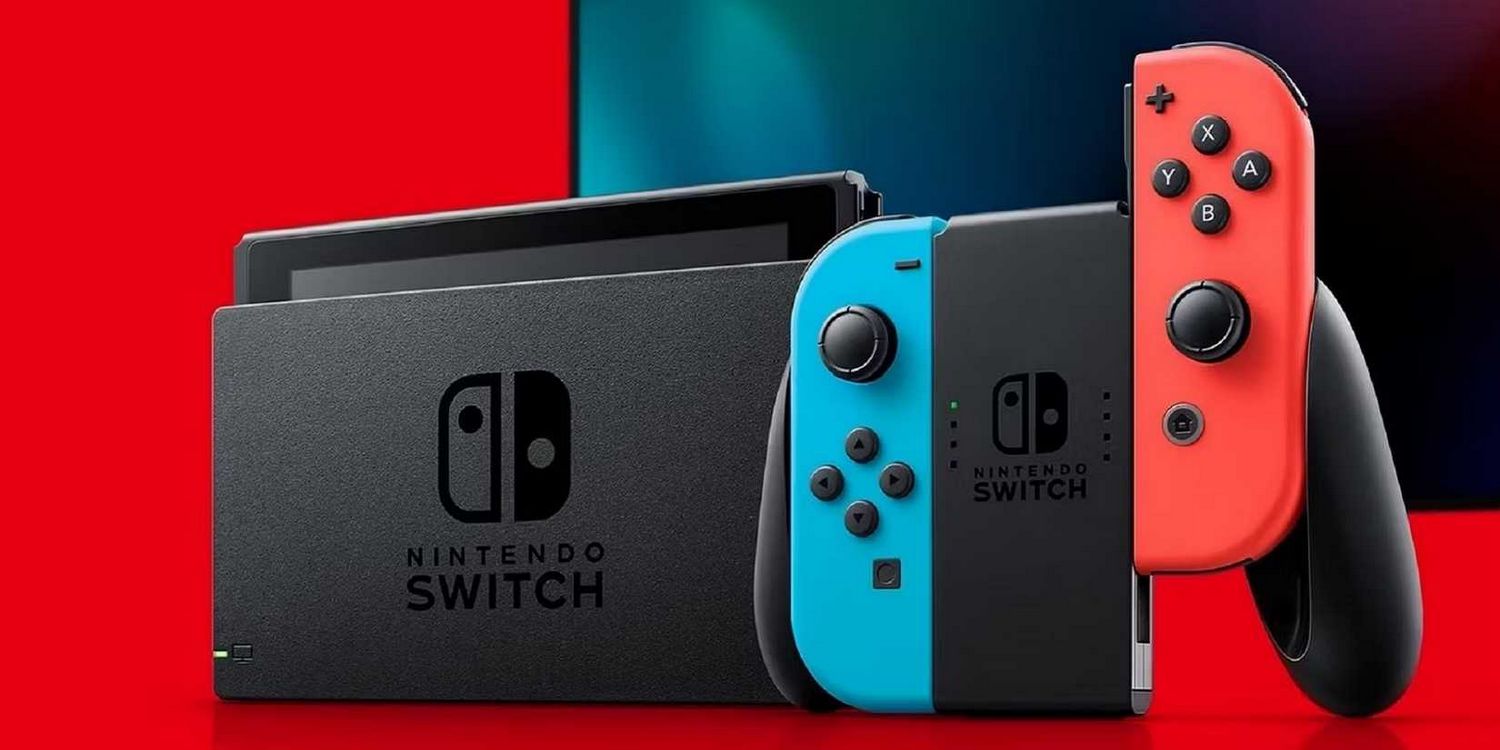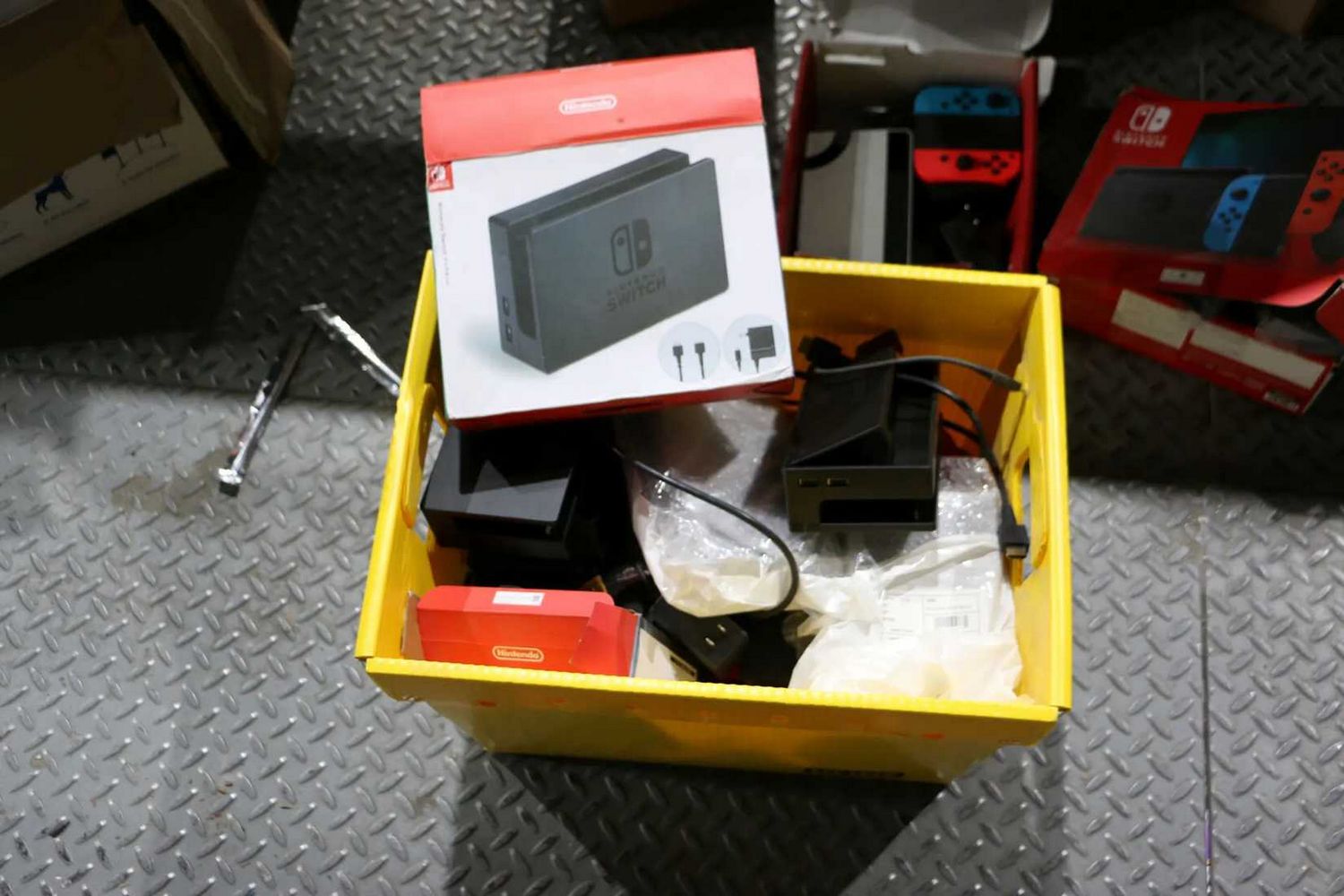Long Island Man Arrested for $2 Million Counterfeit Nintendo Operation on Amazon
Popular Now
 Stumble Guys
Stumble Guys
 Free Fire
Free Fire
 Black Myth: Wukong
Black Myth: Wukong
 Warframe
Warframe
 Garena Free Fire: Kalahari
Garena Free Fire: Kalahari
 Roblox
Roblox
 R.E.P.O
R.E.P.O
 Schedule I
Schedule I
 NBA 2K24
NBA 2K24
 Gacha Club
Gacha Club
 In a major blow to the illicit trade of counterfeit electronics, authorities have announced the arrest of a Long Island man accused of operating a sophisticated scheme that sold over $2 million in fake Nintendo products through Amazon. The arrest highlights the ongoing challenge of intellectual property theft and the dangers posed by fraudulent goods, particularly within the lucrative and fast-paced video game market.
In a major blow to the illicit trade of counterfeit electronics, authorities have announced the arrest of a Long Island man accused of operating a sophisticated scheme that sold over $2 million in fake Nintendo products through Amazon. The arrest highlights the ongoing challenge of intellectual property theft and the dangers posed by fraudulent goods, particularly within the lucrative and fast-paced video game market.
The Nassau County District Attorney’s office, in collaboration with Amazon’s own internal fraud detection teams, brought charges against Isaac Lapidus, 34, of Lawrence, New York. According to the indictment, Lapidus allegedly sold hundreds of thousands of counterfeit accessories, including Nintendo Switch docking stations, adapters, and Pokémon Go Plus devices, through multiple Amazon storefronts since 2018. The operation, which reportedly imported fake products from overseas, represents a significant case of consumer fraud and trademark counterfeiting.
The Anatomy of a Counterfeit Operation
The success of this counterfeit operation relied on a few key factors that allowed it to evade detection for years. By utilizing multiple Amazon seller accounts and importing goods that, on the surface, appeared legitimate, the suspect was able to exploit the high demand for popular gaming accessories. The investigation was reportedly initiated after a surge in customer complaints and returns to Amazon, signaling a widespread issue with the quality and authenticity of the products being sold.
The alleged scheme involved the following steps:
- Importation: The defendant allegedly imported the counterfeit electronics from manufacturers in China and the Philippines. These items were designed to closely mimic the appearance and packaging of genuine Nintendo products.
- Warehousing: The fake products were stored in a warehouse in Island Park, New York, before being shipped to unsuspecting buyers. This allowed the suspect to maintain a large inventory and fulfill orders quickly, giving the illusion of a legitimate and established business.
- Online Sales: The products were sold through various Amazon seller accounts. These accounts used names like “PandaVida Inc.,” “Unibabe,” and “Zuzu Cares 4 U,” which were consistently changed to avoid detection after receiving negative feedback.
The case is a stark reminder for consumers to remain vigilant when making online purchases, especially for high-demand electronics and gaming peripherals. While the convenience of online shopping is undeniable, the prevalence of counterfeit products requires a keen eye for detail.
Consumer Risks: More Than Just a Bad Deal
While a fake product is a disappointment in itself, the consequences of buying counterfeit electronics can be far more serious. Experts and law enforcement officials have warned that these goods often lack the safety certifications and quality control of their authentic counterparts. In this specific case, prosecutors noted that the counterfeit Nintendo accessories could pose a significant fire hazard to consumers’ homes due to uncertified electrical components.
Beyond the safety concerns, the sale of counterfeit products has a wide-ranging negative impact on the economy and legitimate businesses. It robs companies of revenue, erodes consumer trust in online marketplaces, and can fund other illicit activities. For a major corporation like Nintendo, protecting its intellectual property is critical to maintaining its brand integrity and the value of its popular gaming franchises.
 How to Spot a Fake Nintendo Product
How to Spot a Fake Nintendo Product
Given the increasing sophistication of counterfeiters, consumers are advised to take precautions before making a purchase. Recognizing the red flags of a fake product can save you money and protect you from potential harm. Here are some key indicators to look for, according to gaming experts and law enforcement:
- Unusually Low Price: While a good deal is tempting, if a product’s price seems too good to be true, it likely is. Counterfeit items are often sold at a slight discount to lure buyers while still maximizing profit.
- Packaging Quality: Examine the packaging for signs of poor quality. This can include flimsy cardboard, blurry logos, faded colors, and spelling or grammatical errors in the text. Authentic products from major brands like Nintendo are known for their high-quality presentation.
- Product Design and Build: A counterfeit product may feel cheap and light. Look for inconsistencies in the plastic molding, misaligned buttons, or poorly attached labels. Authentic Nintendo products have a distinct feel and are built to precise specifications.
- Seller Reputation: On online marketplaces like Amazon, check the seller’s reviews and feedback. Be wary of new sellers with little to no history or those with a high percentage of negative reviews, especially if the reviews mention “fake” or “counterfeit” items.
- Incorrect Serial Numbers and Characters: In the case of the recent arrest, investigators noted that the fake products had incorrect serial numbers and even Japanese language characters that were improperly used. A quick search of the product’s official serial number format can help verify its authenticity.
The Future of IP Protection and Online Marketplaces
The arrest of the Long Island man serves as a potent reminder of the ongoing battle against intellectual property infringement. While online platforms like Amazon have invested heavily in tools and teams to combat counterfeit products, the sheer volume of listings makes it a perpetual cat-and-mouse game. This case was reportedly brought to the attention of authorities by Amazon itself, demonstrating a proactive approach by the company to protect its consumers and its reputation.
 Legal consequences for this type of crime are severe, with charges such as trademark counterfeiting and conspiracy carrying potential sentences of up to 15 years in prison. This high-profile case is expected to send a strong message to others engaged in similar fraudulent activities. As the global digital economy continues to grow, the need for robust collaboration between law enforcement, intellectual property holders, and online retailers will become increasingly vital to ensure consumer safety and fair market practices. For gamers and collectors, the mantra remains the same: “Buy from a trusted source, and if you have doubts, don’t take the risk.”
Legal consequences for this type of crime are severe, with charges such as trademark counterfeiting and conspiracy carrying potential sentences of up to 15 years in prison. This high-profile case is expected to send a strong message to others engaged in similar fraudulent activities. As the global digital economy continues to grow, the need for robust collaboration between law enforcement, intellectual property holders, and online retailers will become increasingly vital to ensure consumer safety and fair market practices. For gamers and collectors, the mantra remains the same: “Buy from a trusted source, and if you have doubts, don’t take the risk.”










